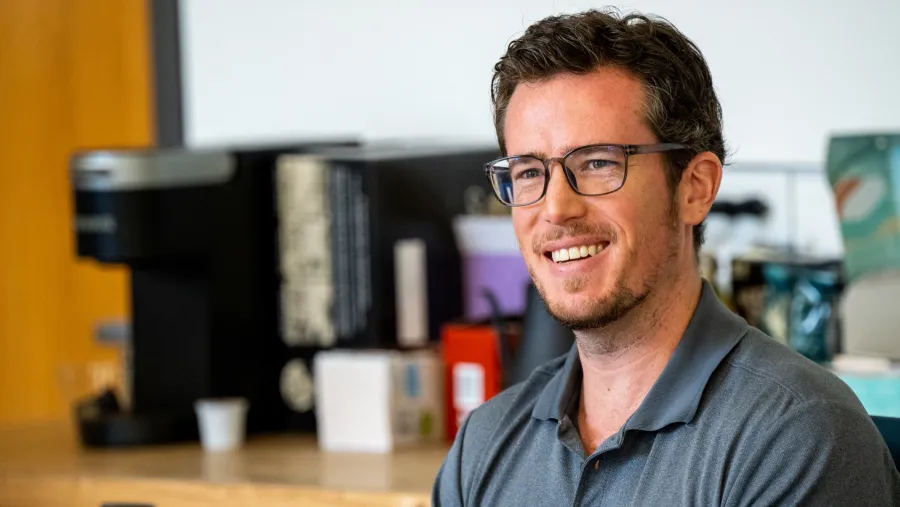
Pureland Venture Partner Chris Hardesty champions accessibility, impact, and collaboration in healthcare
The Pureland Venture Partner and healthcare advocate shared his expert insights on the trajectory of health tech innovations, digital health, policy implications, and clinical adoption challenges, amongst other key topics.
In the realm of healthcare, navigating the currents of innovation requires more than just groundbreaking ideas—it demands a strategic approach grounded in understanding and aligning with the broader goals of healthcare systems.
Dr. Chris Hardesty, Partner at Pureland Venture, brings valuable insights from his extensive experience in the Asia Pacific region. With a keen focus on early-stage healthtech value creation opportunities, Dr. Hardesty brings a wealth of expertise to the table, spanning healthcare policy advising, executive leadership education, and startup mentorship. His commitment lies in the accessibility of safe and affordable medical innovations to underserved communities—a mission underscored by his various roles within the regional ecosystem.
An advocate for change, Dr. Hardesty's leadership is rooted in fostering partnerships that bridge the gap between innovation and healthcare system needs, driving positive impact across diverse healthcare landscapes.
As a judge in the Healthcare Asia Awards 2024, Dr. Hardesty provided his perspectives on prevailing trends, digital health, healthcare policies, the balance between novel medical solutions and traditional practices, and collaborative efforts within the industry.
Reducing clinician burden in healthcare technology
Acknowledging the recent challenges faced by the health tech sector, especially coming off the momentum from the COVID-19 pandemic, Dr. Hardesty emphasised the need for innovators to focus on their commercial pathways. He underscored the importance of articulating strategies aligned with the ambitions of regional health systems, particularly in reducing out-of-pocket expenditure and improving primary care.
“We know all these stories, which means I look for the innovators that seem to be moving in the same direction as the health system goals and therefore can clearly articulate their ultimate commercialisation and scale-up strategy,” he said.
Delving into the adoption of digital health solutions, Dr. Hardesty views “digital health” as a now-integrated aspect of healthcare operations, with it having experienced novelty in earlier years. He then highlighted the imperative of addressing data fragmentation and emphasised the growing potential of AI, signalling a shift in focus towards data optimisation.
“Once the data gets better, the opportunities for AI... that is the next wave of something that we need to tackle, similar to where digital health was three or four years ago,” he stressed.
Meanwhile, addressing the integration of novel medical solutions into diverse healthcare systems, Dr. Hardesty emphasised the need for feasibility in clinical adoption. He further highlighted the resurgence of traditional medicine as a complementary aspect of healthcare in the region, saying this trend aligns to the varying cultures and beliefs in the region. “It's not a mutually exclusive kind of aspect and this is something that I think is going to just continue to grow,” he stated.
Dr. Hardesty also cautioned against overburdening healthcare workers with innovations, pointing out that many innovations being delivered today are potentially causing more stress to clinicians.
“This really needs to be explored further when people are developing innovations to make sure that we're making clinicians’ lives easier and that they can embrace these technologies rather than just overbearing them and ultimately driving up a lot of resistance,” he added.
Navigating localisation and international collaboration in healthcare
On the policy front, Dr. Hardesty commended the progress in regulatory standardisation but identified financing and reimbursement as areas needing further development. He noted that whilst some countries such as Korea, Japan, Australia, and Singapore have stepped up health technology assessments and other reimbursement schemes for novel medical innovation, more countries should not just approve these technologies but also find ways to sustainably finance them.
He also discussed the implications of deglobalisation trends on healthcare innovation and underscored the importance of finding a balance between localisation and international collaboration.
“We see a lot of governments that are putting pressure on local GDP and using local suppliers and local operators, making life hard a bit for more of the international or import-style players. Obviously, we understand why countries want to do this to boost local resilience and local capabilities, but at the same time, it's not really feasible that every international player is going to be able to fully localise their operations,” he explained.
For Dr. Hardesty, this approach leads to some countries missing out on innovations because innovators would tend to prioritise markets that have more favourable terms for international partnerships.
Building partnerships for a healthier future
Talking about collaborative efforts, Dr. Hardesty championed public-private partnerships as continued catalysts for driving impactful change in healthcare delivery. He noted the increasing trust between sectors post-COVID and advocated for broader stakeholder engagement to foster innovation. He stressed the need for health and social care, which could be encouraged by bringing different types of stakeholders together.
Dr. Hardesty underscored that, for him, many company leaders have become “healthcare leaders” in certain capacities, especially following the pandemic. He added, “I think probably where we need to go from here is just being even more creative about the types of stakeholders that we involve…We need to have everybody at the table to discuss.”
Finally, reflecting on his role as a judge at the Healthcare Asia Awards, Dr. Hardesty applauded the emphasis on leveraging learnings from the pandemic.
“I see a lot of people phrasing their impact in terms of people's livelihoods and trying to do good by populations and do good by our planet. I think it's great to see,” he said. “Of course, we want to have sound business ideas and viable business ideas, but it's just great to see people's focus as well on the broader well-being of our societies and our planet.”











 Advertise
Advertise













